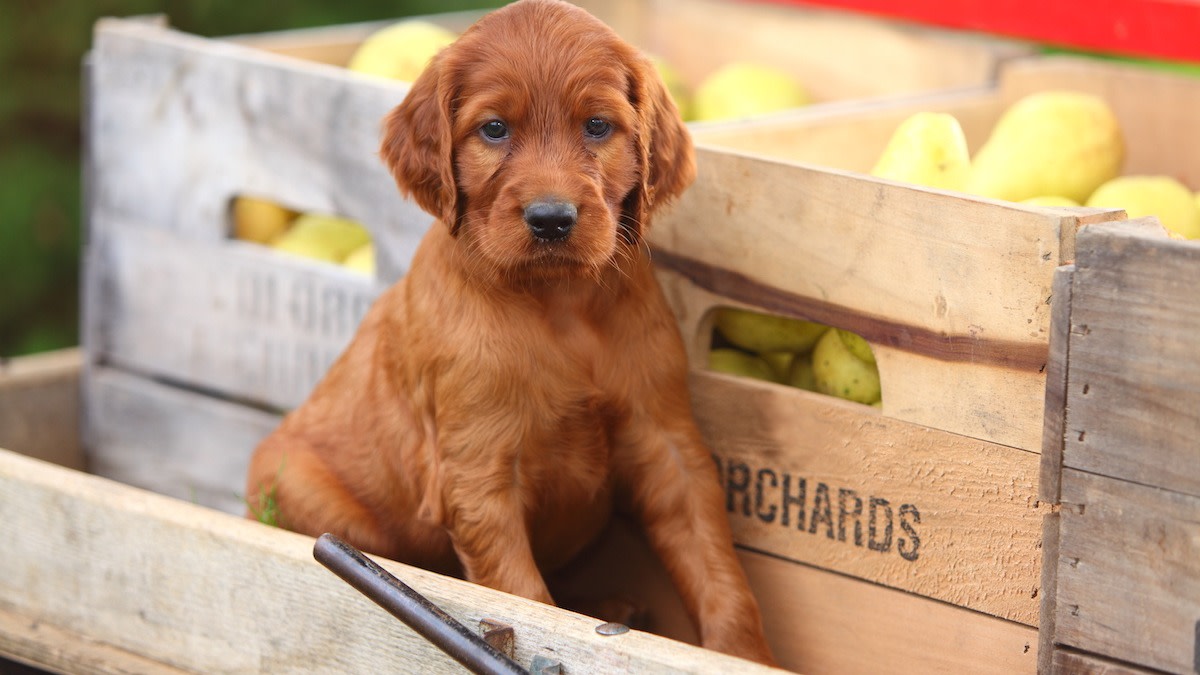Can Dogs Eat Pears? 3 Benefits of Feeding Your Dog Pears
Written by MasterClass
Last updated: Mar 23, 2022 • 3 min read
Pears are a healthy treat that your dog can safely enjoy in moderation. Learn about the many benefits of pears, as well as the risks involved in feeding pears to your dog.
Learn From the Best
Can Dogs Eat Pears?
Pears are a healthy snack for dogs. Feeding pears to your dog in moderation can provide several health benefits; pears are high in vitamins A and C, dietary fiber, and potassium. However, you should only give your dog pears as an occasional treat. The high sugar content of pears can pose a threat to your dog’s health—but only in large quantities. Pears should make up no more than ten percent of the food your dog consumes on a given day. Always use caution when introducing new foods to your dog’s diet, especially human foods. When feeding pears to a dog for the first time, cut up a few bite-sized pieces and mix them in with their regular dog food.
3 Benefits of Feeding Your Dog Pears
Fresh pears are a healthy, sweet treat that’s safe for dogs in moderation. Consider a few of the benefits of pears:
- Pears are full of antioxidants. Pears contain vitamin C, vitamin A, and vitamin K. These antioxidants help support a healthy immune system, reduce inflammation, and support eye and skin health.
- Pears have a high amount of dietary fiber. Dietary fiber is essential to a healthy digestive system. A little goes a long way. Feeding your dog one slice of pear as part of a balanced diet can help keep their digestive tract in tip-top shape.
- Pears contain essential minerals. Pears contain copper, potassium, calcium, and magnesium. These minerals support nerve and muscle function, and they help build strong bones.
3 Risks of Feeding Your Dog Pears
Pears are a great snack for adding nutrition to your dog’s diet. However, there’s a limit to the benefits of pears. Consider the following risks when feeding pears to your dog:
- 1. Upset stomach: As with all dog treats and human foods, if your dog eats pears in large quantities, they may experience an upset stomach. In addition, pear cores, leaves, and seeds contain trace amounts of poisonous cyanide. Dogs should not eat whole pears, but slices or bite-size pieces are perfectly safe.
- 2. Choking hazard: Unripe pears are difficult to chew and can cause blockage in your dog’s esophagus or digestive tract. Only feed your dog fresh, ripe pears that have been cut into bite-size pieces. Pear cores also pose a choking hazard.
- 3. Excessive weight gain: Much like cantaloupe and watermelon, pears contain natural sugars. Too much of this sugary, fresh fruit can lead to weight gain and associated health risks for your dog.
Symptoms of Pear Poisoning in Dogs
Dogs can eat the flesh of ripe pears, but they cannot eat the leaves, core, or seeds. These parts of pears contain trace amounts of cyanide and are poisonous to your dog. Thankfully, the amount of cyanide present in pears is minuscule—your dog would have to eat a very large quantity before exhibiting toxicity symptoms. However, if your dog eats too many whole pears, they may experience diarrhea, vomiting, lethargy, and abdominal pain. If this occurs, contact your veterinarian or animal poison control center.
Before Sharing With Your Pooch
Certain human foods can cause adverse reactions in canines, so always consult your veterinarian to determine whether it is safe to add these foods to your pet’s diet. This article is for educational and informational purposes and is not a substitute for medical or dietary advice.
Want to Learn More About Training the Goodest Boy or Girl?
Your dream of having a dog who understands words like “sit,” “stay,” “down,” and—crucially— “no” is just a MasterClass Annual Membership away. The only things you’ll need to train up a well-behaved pup are your laptop, a big bag of treats, and our exclusive instructional videos from superstar animal trainer Brandon McMillan.
